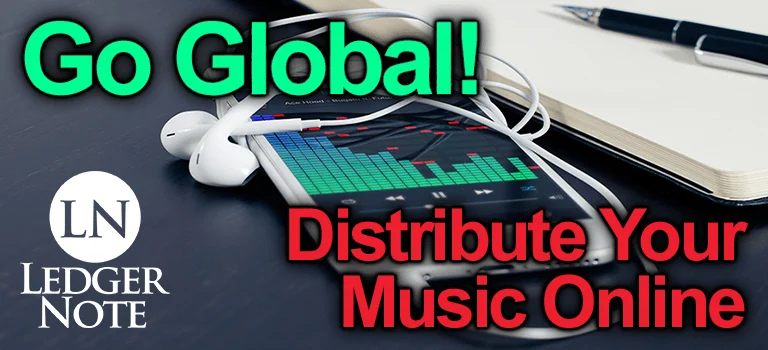
Most musicians want an audience, and many people would love to hear their music (if only they knew it existed). Classically, that’s where music distribution came into play, but in the new millennium, that means digital distribution across the internet.
Let’s look at reasons every musician should be distributing music online. Online distribution is easy to do:
- It’s shockingly affordable
- It can make you money
- It’s open to every artist
- It reaches millions more people than selling hard copies
- It helps make better music available for everyone
The days of the big corporations controlling your access to music is over. It’s in their best interest to block out anyone they haven’t given their stamp of approval to and placed their marketing budgets behind.
Now, anyone can listen to anyone, usually streaming samples or the full albums first, and then choosing to support the individual band or artist if the quality is there.
That’s a surprisingly simple hurdle to leap over when you consider the trash we’re used to hearing on the pop radio and TV channels. And not everyone is content to listen to the oldies on repeat.
Easily Distribute Your Music
If you’re just starting to research whether online distribution is for you, you may feel a little iffy about how much work goes into it. The truth is, you’ll do more work learning about music distribution than you will actually doing it.
There are several online companies today that specialize in distribution and each has its strengths, Some will offer a little more hand-holding and customer service than others. Others will have a greater reach but be more expensive.
Others still might be cheaper but have a smaller reach of platforms they’ll place your music on. But nearly all of them are as simple as signing up and uploading your tracks with metadata intact along with your album artwork.
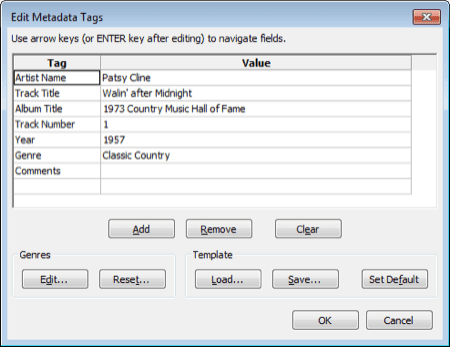
The process is generally the same everywhere. You register your email address, fill out a simple form, upload your music, and unless there’s something amiss with the quality of your recording (or if the upload didn’t work right) then your music will be live online worldwide in a matter of weeks.
Getting your music into the hands (and ears) of your fans (and scouting agents) takes twice as long the first time than it will from then on, too. You won’t need to register your account after doing it once. Just log in with your email address or user name and click the button to start a new product for distribution.
Once your music is out in the world selling and streaming, you’ll be able to check out your sales statistics on your user dashboard. Each company has a method of payment for you to pay them for their work and in turn be paid your accumulated earnings in one mass deposit.
All of this happens with the ease and simplicity of visiting your favorite social media websites, but of course with much more excitement because we’re making music and money.
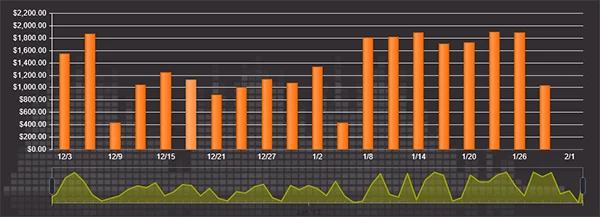
In fact, the whole point of an online music distributor is they handle all the work of getting the music out. It’s a major job for them, especially if they’re getting the music to as many outlets as possible.
Take for example a company like Octiive (formerly MondoTunes). Their reach includes all of the big dogs such as:
- iTunes
- Amazon
- Spotify
- Google Play
- Tidal
- and over 600 more…
With one fell swoop you can hit the sites above, toss in YouTube, Vevo, Deezer, Rhapsody, and pretty much every other distributor you can imagine. One of the main principles of a takeover in marketing is to “Be everywhere at all times.”
This is how you pull that off with a literal fraction of a fraction of the effort it used to take. That’s why it can be surprising that…
Online Distribution is Shockingly Affordable
With online music distribution companies doing so much work to get your music to the furthest reaches of the world, it may seem unbelievable that anyone can afford it. It’s true, though. You’ll need to compare which pricing scheme makes the most sense for you, whether you want to pay per song, per album, per month, etc…
But make no mistake, there’s an option for everybody. If you just have one song and think you’ll never release another one, there’s a company who will make that dream come true for a one-time fee.
If you’re a more serious music artist who is building a career in music from the ground up, you’ll probably want a company who can accommodate all the music you’re going to be producing in the future, not just what you already have completed.
It’s easier to keep using the same company and workflow than to start and stop with several each time you release a new album or single. Please keep that in mind before you commit with anyone. You can change companies but it can be frustrating.
The point is, the money you’ll spend to get your sounds around the world is negligible in 2017, and that doesn’t look like it’s going to change any time soon thanks to advances in automation, scripting, and API access. With more digital music distro companies today than ever before, all that competition will keep driving consumer costs down too, which is where you want them.
In fact, there are already some distro networks which will let you release as much music as you want – literally infinite singles, EPs, and full-length albums – for forty bucks a year (that’s actually Octiive again).
With that worry out of the way, you’re free to think about how much you want to charge for your music, yourself, which is important to consider, because…
Online Music Distribution Can Make You Money
What do the names Nine Inch Nails, Marilyn Manson, and Radiohead have in common? They’re all independent artists today. This means they distribute their music using independent online music distribution just like you can.
Naturally, all three were once signed to a label (back when it made more sense for them to be on one) but there are legions of unsigned artists doing modestly well who’ve never been signed at all, including Jonnie and Brookie, NOFX, Chance the Rapper, and David Choi.
The reason online distribution can easily make money is in the breadth of the distribution, which is why picking a distributor with the largest distribution can be the most important decision you make, even if it costs you a bit more up front.
The game these days is in volume of sales, not higher cost sales of fewer items. That’s why you see people distributing to 600 sites and only charging 99 cents per song. You’re not even forced to buy the album bundled any more.
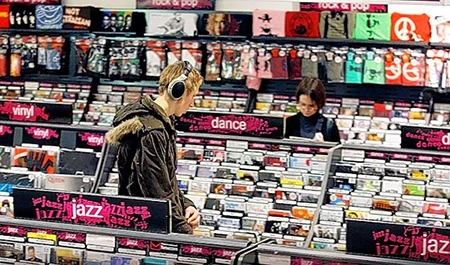
Not long ago, indie music artists needed to sling their records around by hand, shopping them to local music stores and selling them at live shows, tiptoeing around stacks of cassettes and CDs meant for snail-mail sales and making constant trips to the post office.
And how many fans can an artist really reach that way? A few thousand? A hundred thousand? Selling your mixtape out of the trunk of your car can still work, but it’s not remotely efficient. A good digital music distributor can get your recordings into hundreds of online music sellers in about a month, and sometimes even less.
This increases your potential listening base to the number of people with access to the Internet, which means about three-billion people right now, or about 40% of the global population –- and that number’s always going up.
So if you think you can make any money at all distributing your music yourself, just imagine what you can make with a legitimate connection to three trillion people. There’s a lot of music lovers in there. And plenty of them are distributing their own music online, too, because…
Digital Music Distribution Is Open to All
The beauty of the digital music revolution is that it has been ringing the bells of freedom since it got here. Nobody is cut out. Nobody is turned away. Every person with a few paltry dollars and an internet connection is welcome to publish their music.
To be perfectly clear: if you have an unusual idea for a song –- say, for instance, you want to repeat the phrase, “Hot dogs and polka-dotted knickers” over and over for three-and-a-half minutes –- you can record it, upload it, and get it available for sale at every quality music store in the world just as if you were Elvis, himself.
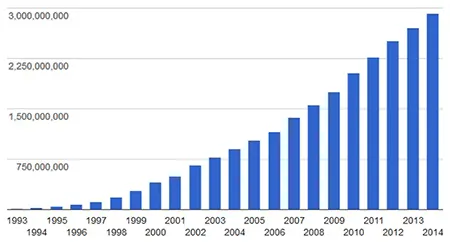
There was a guy who did something just like that in the earlier days of the internet. He’d make as many variations on the same song as possible and upload them all over the place.
Each would have a unique song title that was meant to be a search term, so when someone looked up “fuzzy dog in green slippers” or anything close to that, he’d be the first result and get more exposure. We don’t recommend doing that, but it goes to show you the idea of having vast exposure and moving a high volume of low-cost units.
This guy didn’t keep doing that nonsense for no reason. Attention is the new currency and gateway to a sale, or at least a stream, and the place to grab attention is the internet.
“Just as technology has enabled easy music production for young, emerging artists, it has also provided them with a way to reach fans all over the world … Platforms like SoundCloud have more than 250 million active users each month and Millennials discover their music predominately through these digital platforms. Incidentally, when digital natives produce new music, they release it first on the digital platforms.” ~ Thomas Honeyman
And how many of those musicians publish their music through a digital music distro company? Even a small percentage means millions. Are they all making fantastic music? Not likely.
But they’re all equally welcome to make their unique sonic perspective available to everyone online, and that’s the way it should be because people are different all over the world, each with their own unique tastes.
A symphony to me might be utter tripe to you and vice-versa. Some of the world’s most ardent music lovers like some of the most surprising kinds of music, and some of history’s best artists have made some of the most strange, unlistenable schlock one can imagine.
New artists are influencing each other and finding or creating new fanbases daily like my new favorite, the retro-80’s Synthwave sub-genre. And everyone is finding their fan base.

Lou Reed recorded forty minutes’ worth of looped guitar noise in 1975 called “Metal Machine Music,” and do you think people still buy it online today? You bet. There are sure to be people who still love that remarkable (if bizarre) album, and they can buy it online. After all…
Online Music Distribution Outreaches Hard Copies
Vinyl records may be a billion-dollar industry for the first time since the 1980’s (thanks, trendies and disc jockeys!), but the internet is still the most important factor in the music scene today.
Listeners stream music more than ever before, which earns artists cash without a sale, and business experts even report that online listening is responsible for saving the music industry from its twenty-year tailspin… although the internet created the problem before solving it.
“Streaming has been the clear driver of this growth, with revenues surging by 60.4%. With more than 100 million users of paid subscriptions globally, streaming has passed a crucial milestone. It makes up the majority of digital revenue, which, in turn, now accounts for 50% of total recorded music revenues.” ~ International Federation of the Phonographic Industry
This means music artists need to have an online presence. This is true even if live performances represent the lion’s share of an artist’s output and income.
Note that the active word here is ‘need.’ This is because not being online means people who search for your material will presume you haven’t “made it” far enough to be worthy of an internet presence, something every kid with a MacBook, an audio interface, and a few rap lyrics set to pre-packaged beats almost certainly has.
Unless you’re trying for an aloof, too-cool image or trying to look like you can’t use a computer, your online character should be as well-groomed as your hair, and probably more so. Branding and marketing is as important as the quality and content of your music. Even more so if we take the modern pop and rap genres as evidence.
That the internet reaches more people than physical distribution may not be obvious but simply distributing a music release through an undiscriminating digital distributor means anyone with a PC or smartphone has access to the music, and that’s far more than the people hopping in their cars to drive to the mall or mom & pop music shop.
If you’re one of the few music artists in your genre trying to amass a fan base without using the titanic tools available through the World Wide Web, then you’re competing with millions of artists who are using those tools. You’re not just completely outnumbered, you’re also pathetically outgunned.
Doesn’t matter if your record is the hottest thing since Post Malone (who made it big and was signed based on the popularity of his music on SoundCloud), it can’t compete if it’s not online.
Digital Distribution Relaunched Musical Creativity
Perhaps the most fun part about independent digital distribution is the effect it’s having on the music world, itself. For the largest part of the twentieth century, record labels controlled the distribution.
If you wanted to buy music, you had to buy from a store in your town or over at the mail, both of who’s resources depended on a handful of mega-labels to say where these records would be distributed, not to mention who got distributed at all.
“During the 1980’s and 1990’s, dominant labels purchased or merged with smaller labels and altered the landscape of the industry. By 1999, the music industry was firmly controlled by five large corporate entities or ‘majors.’ These were Bertelsmann AG (headquartered in Germany), the EMI group (Britain), Seagram/Universal (Canada), Sony (Japan), and Time-Warner (U.S.).” ~ Brian J Hracs
If you guessed that music controlled by just five companies would come out as bland, homogenized, and culturally sterile, you’d be joined by millions of music lovers who agree with you. The radio became so predictable that many stations became almost permanently associated with one or two acts they showcased on their programs too often (and often times in collusion with the companies for ‘payola‘).
Whole genres of music started parodying themselves as performers trying to make it in the scene were forced to sound like acts who had already made it. These artists “sold out” their unique styles not to get rich and famous, necessarily, but just to get the attention of the corporate music representatives at all. Listen to the pop country coming out of Nashville for a prime example of this.
Nations of music fans rebelled. Whole new scenes sprang up, such as the underground rap movement, the hardcore and punk rock scenes, and the inclusive, amorphous “alternative” category, now largely defunct, which once covered everything from techno music to grunge rock.
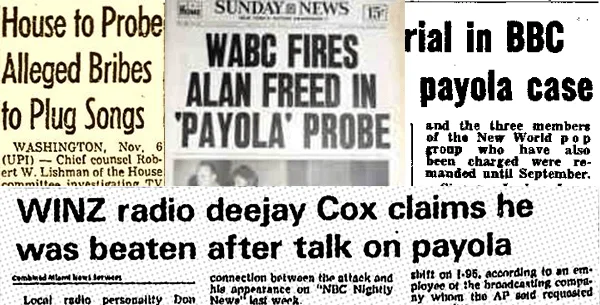
Many of these artists were independent artists with their own distribution, and they made it happen for themselves not just without the aid of corporate music entities, but actually against the efforts of big music to keep indie artists from getting off the ground.
Giving anyone and everyone access to publishing music prevents the above kind of nightmare from ever happening again. But besides the business end of music, online music distribution helps artists be better at what they do, too, by removing the business distraction altogether.
When musicians compete for listeners rather than for availability, artists are forced to measure the quality of their songs against the quality of other artists’ songs. Sure, popular trends may force a one-hit-wonder here or there, but when everybody gets to publish their music at an affordable cost, it’s style and innovation that will persevere.
All of which begs the question:
How Do I Choose a Distribution Company?
Now that you’ve decided online distribution is for you, you’re going to need to pick a distributor. The decision begins with a little research.
You’ll want to weigh the pros and cons of each company yourself, of course, and the facts are all right here on the internet for you. Spending time at each company’s website and comparing what they offer should be enough. Keep in mind, though, that the real test will be the actual experience of distributing with the companies.
You don’t have to stay with the first company you choose. Companies change their business models from time to time, and it’s in your best interest to continually reassess whether you might like to try distro through some other supplier. The decisions you are about to make are not writ in stone.
Most of the above might seem obvious. What’s not so obvious are a couple major and all-too-common pitfalls.
1) Don’t Judge Companies by Their Branding
The major mistake most artists new to online distribution make is in judging a distro company based on the cosmetics of its website, the way its logo looks and all that.

That’s not helpful. Oftentimes companies will focus on marketing and have sub-par offerings, but they don’t care since they already scored your money. Here’s a classic over-marketing example:
Kevin Federline’s “Playing with Fire” might look like a decent hip-hop LP with its Old-English lettering and K-Fed’s mock-thug expression, but let’s face it, that was a terrible record from a guy that was actually a backup dancer trying to strike while he had the attention from dating Britney Spears.
Maybe you like the way a company’s website looks because it matches the image you want to portray, but your listeners aren’t going to associate you with your distributor. Most listeners don’t even know what music distribution means (or care). Remember, a distributor’s job isn’t graphic and web design, it’s distribution.
2) Don’t Let Trolls Tell You Where to Go
Another big mistake is in having too much faith in user reviews on forums. These can be fabricated. Forums are often filled with company employees slandering one another, too. At best, forums represent anecdotal evidence, which is not evidence at all.

Every company has upset some artists for whatever reason, and the angriest people are most likely to rant about their experience online with their entirely one-sided viewpoint that may not represent reality factually. It makes no sense to choose a distro company based on the raging of online trolls.
If you want to find good things online about a company, you’ll find it. If you’re looking for people bashing a company, that’s there, too. Neither is of any use to you. With modern day internet astroturfing, you can’t always trust the vocal ‘majority.’
3) Consider The Details of the Arrangement
Think about what your goals are here. If you’re already or intend on being a career musician, then you may consider using a company that has an annual fee that you must renew each year. This will be cheaper up front but after a decade you’ll have paid ten times that fee.
However, this will literally be nothing, a drop in the bucket, if you’re promoting yourself and making sales. It’s also worth it due to the much higher level of customer support you can receive.
If you want to push your one album out to the world, since you already finished it, but don’t want to pursue music as a lifelong pursuit, a higher one-time payment may be up your alley so you’re not on the hook for a renewal fee each year.
Understand that you’ll likely get a lower quality customer service and fewer points of contact with the company, but you’ll still have access to the dashboard and the ability to receive payments.
Read the fine print, the contracts, and the FAQ’s. Revenue gets shared all over the place, and it’s worth it, but don’t get caught off guard. In the end this is all about marketing and promotion. The big bucks comes from live performances and merchandising, and this is just how you draw a crowd. But if you go viral you’ll be more than happy to share a cut with whoever can keep the sales coming in!
Just remember, this is a distribution channel, meaning they are handling your finances and analytics as well. Make sure you check to see if your music will be removed from the network of sites if you quit paying.
This isn’t a trick on their side, it’s a matter of them not continuing to receive payments for your sales. On the other hand, don’t try to trick a company into distributing your music and then thinking that you can cancel and keep your music live across the web.
Some may allow that, but it’ll be the one-time fee companies and you may not be able to update your listings in the future. Do your due diligence and know what you’re buying!
Some Distribution Companies to Consider
Below is a list of some of the most popular options available for you to get you started with your investigation:
- Octiive
- Ditto Music
- TuneCore
- DistroKid
- CDBaby
- ReverbNation
- Symphonic Distribution
- The Orchard
Your search may very end somewhere on that list, but realize there’s a plethora of more companies out there. I’d recommend only going with a larger one that’s been around for a long time, because the last thing you want is your company to eventually shut down on you and you having to start over.
Online Music Distribution Isn’t Too Hard
The upshot of all this, for the listeners anyways, is no artist can do without online music distribution. It’s good to accept this now, because it’s definitely not going away. If you’re a music fan, the internet should be your go-to music library.
No record store in the world has more fresh opportunities for your ears. And if you’re an artist, internet distribution should be the natural step after finalizing your tracks and mastering your record.
Let the big labels fight for space on the rack in the mall with CD’s they had to pay to have pressed. You don’t need it. Think of any musician. Try to find their material online. There it is. Thank you, internet. Let this be you, too.